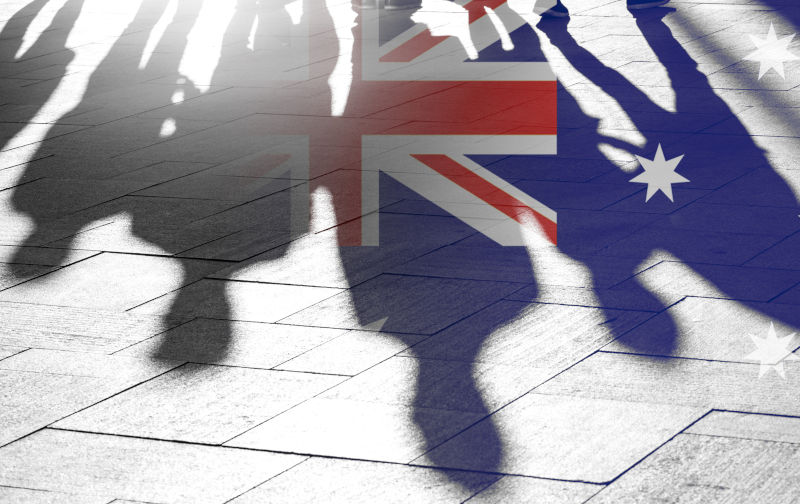Over dinner on a recent group tour in Australia, conversation turned to the wave of anti-immigration demonstrations and political statements that have flared across the country.
One woman of Anglo-Saxon origin offered a blunt view: Australia should only allow people “like us” to come. She clarified that by this she meant those with the “right” culture, behaviour and religion.
Her comment made me pause. Did she see me, a person of Middle Eastern Arab background, as one of “us”? And more importantly: what if the Aboriginal custodians of this land had told the colonisers in 1788 that they would only allow people “like us” to stay?
The long shadow of ‘White Australia’
Australia has been here before. The “White Australia” policy, enshrined in the Immigration Restriction Act of 1901, effectively restricted non-European migration for seven decades. It was dismantled in stages between 1949 and 1973, culminating in the Whitlam Government’s formal end to racially selective immigration.
This shift was profound. Migrants from Italy, Greece, Lebanon, Vietnam and, later, China and India reshaped the social and cultural fabric of Australia. By the 1980s, under the Hawke Government, multiculturalism was officially embraced as national policy.
Multiculturalism under strain
Multiculturalism has always been contested. Critics argue it fosters ethnic enclaves or “parallel societies”, while advocates maintain it enables people to preserve cultural traditions while still participating fully in civic life.
The tension has sharpened in recent years. The huge and sustained demonstrations in support of Palestine — condemning the war in Gaza — have become some of the largest political rallies in Australia in decades. In direct response, far-right groups have mobilised in Melbourne and Sydney, calling for a halt to immigration and for the preservation of “Australian values”. At the same time, political rhetoric has hardened. Opposition figures have warned of “unsustainable migration”, while minor parties have openly questioned whether multiculturalism has failed.
These debates are hardly new. Pauline Hanson’s 1996 maiden speech warned that Australia was being “swamped by Asians”. Since then, anxieties about belonging have reappeared in different guises: over Muslim migration in the 2000s, African youth crime in the 2010s, and, most recently, the Voice referendum in 2023. Each episode has reignited the question of who is considered truly Australian.
Beyond multiculturalism: towards multi-ethnicity
Perhaps the problem lies in the limits of multiculturalism itself. While it celebrates cultural diversity, it has not always articulated the civic foundation that binds society together.
A more robust framework might be multi-ethnicity: recognition that Australians come from diverse origins, but belonging rests not on ancestry, culture or religion, but on adherence to democratic norms, equal rights and the rule of law.
Under this vision, “like us” would not mean Anglo-Saxon, Arab, or Chinese. It would mean anyone committed to the civic compact. It also resists hijacking from two directions: supremacists who would narrow belonging to race, and minorities who might seek to reshape Australia according to rigid ideological frameworks.
In my opinion, any concept ending in “-ism” tends to become “ideological” and can easily be manipulated and politicised by both those who adhere to it and those who oppose it.
A question of belonging
The woman at dinner may not have realised the weight of her words. But her comment reflects a deeper fault line in Australian society: who gets to define “like us”?
The First Nations peoples of this land never had the chance to enforce their own definition of belonging. Their dispossession is a reminder of how exclusion can be wielded with devastating consequences.
Australia has come a long way since the White Australia policy. But the revival of exclusivist language shows how fragile inclusive belonging can be.
If Australia is to remain both diverse and cohesive, “like us” must mean all who are willing to participate in a democratic and equitable society. That is the only fair and sustainable way to answer the question of who belongs.
The views expressed in this article may or may not reflect those of Pearls and Irritations.

